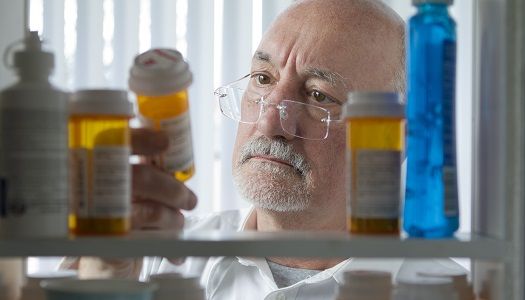Article
Popular Heartburn Remedies Carry Infection Risk
Author(s):
Heartburn drugs like Prilosec and Nexium might alleviate acid reflux, but could raise the risk of severe stomach infections.

Raiding the medicine cabinet for heartburn drugs like Prilosec and Nexium might alleviate acid reflux, but could raise the risk of severe stomach infections.
Recently published study findings in the British Journal of Clinical Pharmacology weren’t the first to suggest using acid suppressors long-term could trigger Clostridium difficile (C. difficile) and Campylobacter bacteria — two bugs that cause abdominal pain, diarrhea, and more serious conditions. The US Food and Drug Administration (FDA) had reported a safety announcement in 2012 stating the potential causal relationship between using stomach acid drugs called proton pump inhibitors (PPIs) and increased incidences of C. difficile- associated diarrhea (CDAD).
To specifically investigate whether acid suppression medicines (PPIs) increased the risk of bacterial gastroenteritis, researchers from the University of Dundee in Scotland, led by Thomas MacDonald, MD, conducted a population-based study (from 1999 to 2013) using a database of 564,969 patients: 188,323 already exposed to PPIs and H2 receptor antagonists (H2RA) and 376,646 controls.
The team made sure to account for additional factors like age and medical histories, but still noted a relationship between heartburn medications and higher rates of stomach infections. The study’s main outcome measure was a positive stool test for C. difficile, Campylobacter, Salmonella, Shigella, or Escherichia coli O157 and showed the following 22,705 positive results:
- 15,273 C difficile
- 6,590 Campylobacter
- 852 Salmonella
- 129 Shigella
- 193 Escherichia coli O157
The team discovered that compared to the group that was unexposed to PPIs and H2RA, the exposed group was four times more likely to develop Campylobacter infection and 70% more likely to be diagnosed with C. difficile outside of a hospital.
According to researchers, the heartburn drugs that seem problematic included PPIs such as Prilosec, Prevacid, and Nexium and H2 blockers like Zantac, Pepcid, and Tagamet.
Interestingly, since these common medications are available over-the-counter (OTC), people often assume they are 100% safe and effective. However, these same medicines have been reported to suppress production of stomach acid, leading some users to be more vulnerable to gastrointestinal infections.
Experts did address the fact that PPIs don’t automatically cause gut infections, since C. difficile often affects people who had been sick and on prolonged courses of antibiotics and Campylobacter bacteria infections are typically foodborne. However, the drugs can contribute to higher risks of gastrointestinal infection with stomach acid suppression as the leading culprit.
Heartburn is a common ailment that requires proper care, but physicians do encourage people to make sure PPIs or H2 blockers are the necessary treatment method to use, especially long-term.
The FDA’s safety announcement, “FDA Drug Safety Communication: Clostridium difficile- associated diarrhea can be associated with stomach acid drugs known as proto pump inhibitors (PPIs)” was published in 2012.
The study, “Acid suppression medications and bacterial gastroenteritis: a population-based cohort study,” was published in the British Journal of Clinical Pharmacology.
Related Coverage:
Scientists Review Efficacy of Off-Label C. difficile Treatments
Oral Antibiotic Can Prevent C. difficile Infections in Stem Cell Recipients
Study: Ceftriaxone for Pneumonia Elevates C. difficile Risks, “Should Be Shunned”




